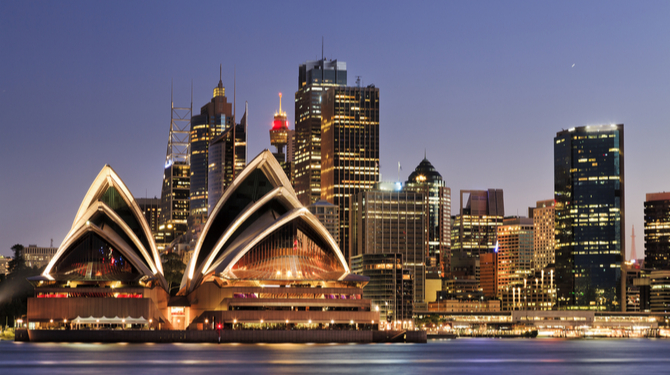Sign up for our free daily newsletter
YOUR PRIVACY - PLEASE READ CAREFULLY DATA PROTECTION STATEMENT
Below we explain how we will communicate with you. We set out how we use your data in our Privacy Policy.
Global City Media, and its associated brands will use the lawful basis of legitimate interests to use
the
contact details you have supplied to contact you regarding our publications, events, training,
reader
research, and other relevant information. We will always give you the option to opt out of our
marketing.
By clicking submit, you confirm that you understand and accept the Terms & Conditions and Privacy Policy
The Law Society of New South Wales (NSW) in Australia has launched a platform to tackle sexual harassment in the legal workplace and support lawyers who have experienced or witnessed such harassment, discrimination or victimisation.
The online portal provides lawyers with information on the steps they need to take if they wish to report such incidents or behaviour, as well as hosting resources that shed light on sexual harassment in the legal profession and initiatives being undertaken to address it. The platform also includes information on training the society is providing to raise awareness of the issue and combat sexual harassment in law.
The move follows controversy generated by two separate sets of allegations of sexual harassment against Australian judges that have heightened awareness of the problem within the legal profession.
Last year, an enquiry commissioned by Australia’s High Court found that former high court justice Dyson Heydon had sexually harassed six former judges’ associates, claims he categorically denied. And last month a similar enquiry found that Joe Harmon, a federal circuit court judge in the Sydney suburb of Parramatta, had sexually harassed two young women.
Last December, the Law Council of Australia, of which the NSW law society is a member, unveiled its National Action Plan to Reduce Sexual Harassment in the Australian Legal Profession. It recognised that: 'All available statistics, as well as anecdotal evidence, suggest that sexual harassment within the Australian legal profession is a prevalent and persistent problem.'
Juliana Warner, president of the NSW law society, said: “I feel very strongly about keeping the spotlight on this issue and continuing to find ways to create more open workplaces, backed by the appropriate polices, reporting processes and support, and ultimately empower victims to speak out without fear of negative repercussions. Everyone has the right to feel safe and supported in their workplace.”
The portal also includes access to guides published by the society to help identify and eliminate discriminatory practices, as well as providing details of legislation and rules that are relevant to sexual harassment in the legal profession. It also contains access to the society’s mental health and wellbeing portal.
Warner added: “As an association that represents 43% of Australia’s solicitors, we have a responsibility to be part of the solution and ensure that victims can speak out against unacceptable behaviour in the knowledge that it will have severe consequences for the perpetrator and not them.”
The Law Society of NSW is also launching a series of workshops through its continuing professional development programme to deal with sexual harassment in the workplace and to improve workplace culture, including identifying inappropriate conduct, the responsibilities of bystanders and how to report and manage complaints.
Meanwhile, changes to Australia’s Sex Discrimination Act are imminent following last year’s publication of the Respect@Work: Sexual Harassment National Inquiry Report (2020) by Sex Discrimination Commissioner Kate Jenkins, according to Sydney Criminal Lawyers blogger Sonia Hickey.
‘Up until now, politicians and judges have been considered exempt from the Act due to the fact they are technically not a complainant's employer,’ she wrote last month. ‘However, the changes will mean that public servants such as members of parliament, magistrates and judges face dismissal if they are found to have engaged in sexual harassment.’
Last month, the New Zealand Law Society unveiled new rules governing lawyers’ behaviour designed to tackle bullying and harassment that clarified ‘the standards of behaviour expected of lawyers when engaging with clients and colleagues’.
A few days earlier, a former partner at top New Zealand law firm Russell McVeagh was found guilty of inappropriate sexual conduct towards summer clerks during a Christmas party in 2015 in a case that sparked protests against the firm when they first came to light.
Email your news and story ideas to: [email protected]





